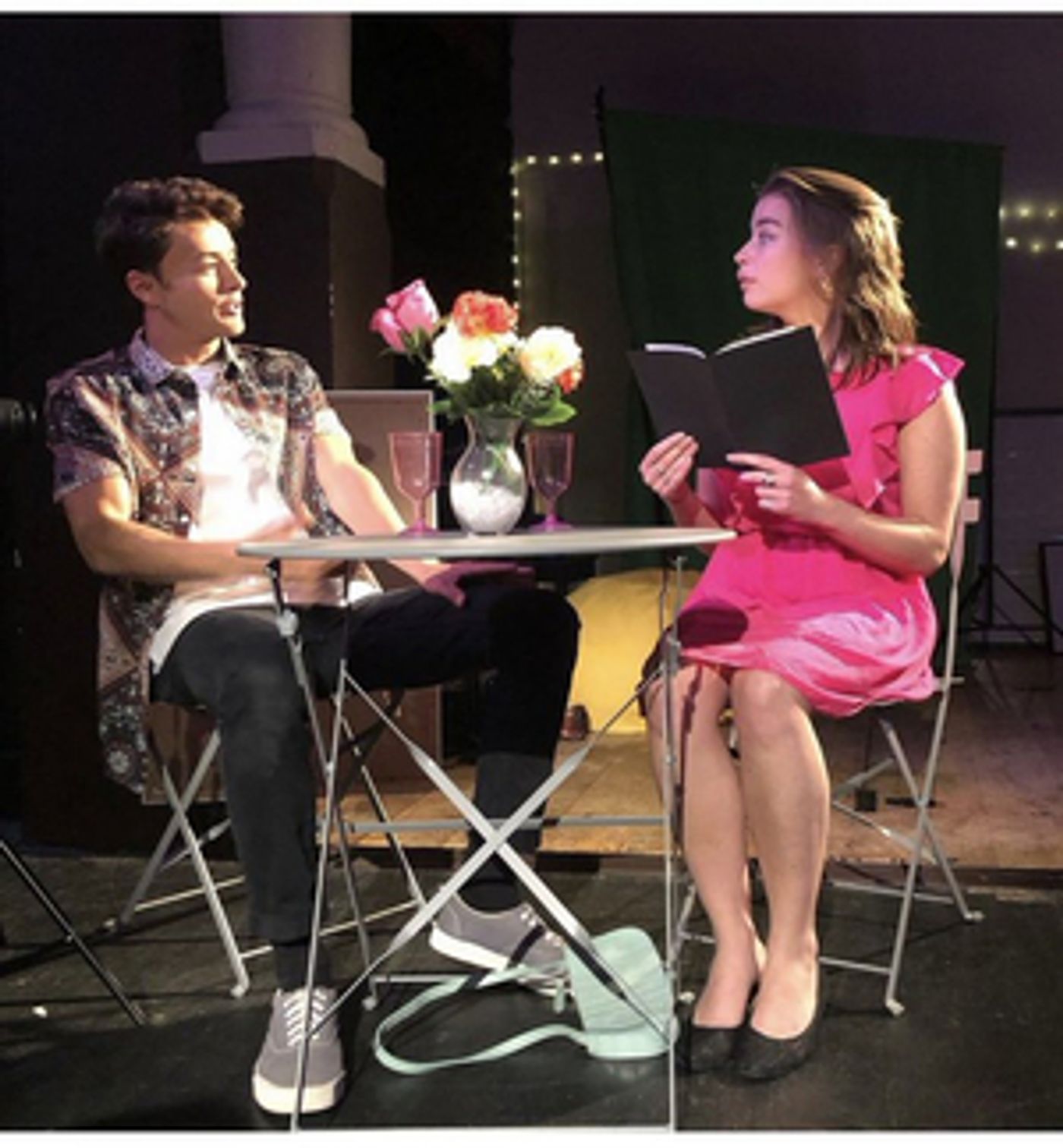Review: THE COLLAB, The Space
A very contemporary look at contemporary relationships

 Ella is an up-and-coming beauty vlogger, engaging but not exactly slick, gradually building her online community. She has big plans to monetise her little operation (merch is already a click away) but it's a crowded field and everyone needs an edge.
Ella is an up-and-coming beauty vlogger, engaging but not exactly slick, gradually building her online community. She has big plans to monetise her little operation (merch is already a click away) but it's a crowded field and everyone needs an edge.
She meets Max, who is older, has millions more followers on his socials, and is possessed of the easy charm and bland good looks of those MTV presenters a generation or so back. He recruits her for his project promoting art for all and they're soon recreating Manet's Le Déjeuner sur l'herbe, she showing off her considerable feminist analysis chops and he flattering and flirting, but seldom straying from the right discourse - he knows the rules of this game and how to "win".
She's swiftly infatuated with him and, with his somewhat reluctant help, her channel is growing exponentially, but he's a little distant, ever more controlling in their relationship and feeling his narcissism challenged by her success. Ella's best friend, Kat, had clocked him for what he was from the get-go and tries to warn her off, but Ella defends her right to (in essence) make bad choices, until the toxicity in the relationship overwhelms her.
This is theatre by and for young people that uses the technologies they use to tell a compelling, contemporary, complex story that resonates far beyond its moral standpoint. That may sound a little patronising in a review, but too often the nuts and bolts of drama (character, plot, pace) play second fiddle to a passionate and overarching message, but writer, Lauren Morley, and director, Rachael Bellis, know how to make a play. They also integrate video, texts and other media as successfully as I've seen anywhere on the fringe. We're looking at lives as they are lived in 2022 here - and that is far too infrequently the case in 2022's theatre.
That technical accomplishment is mirrored by fine performances from the cast. Louise Lord catches the bright but naive girl at the start of the affair, the stubborn young woman who is fooling herself as the relationship progresses and the damaged but indomitable survivor at the end. It's critical that her protagonist is credible at all times, too strong to be wholly a victim and too trusting not to be eased into very dangerous waters - Lord walks that tightrope very well.
Andre Frey is equally good as the predatory Max, genuinely attractive, but gruesomely ruthless in his brokering of his superficial qualities into his exploitation of girls over whom he holds a significant power advantage. More a man who behaves monstrously rather than a monster for much of the play, his true colours eventually come through in a rare example of the writing slightly over-directing its audience's judgement.
Maria Eastwood Krah as Kat and Clark Alexander as Brett offer fine support to the principals, the two initially clashing (Brett has none of Max's oleaginous polish) but growing closer ever so slowly through a mutual professional and personal respect. It's a subplot that could become merely a vehicle to show that relationships need not be founded on exploitation, but it's delivered with such warmth that it stands on its own feet.
The Collab is a play that London needs right now - a hot button topic (on the way home, I was reading about the verdict in the Johnny Depp / Amber Heard case) delivered by the generation who are living through these changing times.
Ideas about what constitutes consent are moving far beyond the glib certainties of the 60s and "Women's Lib" (an era that suited many men just fine) and the 80s battles over equalising the age of consent for gay men. Mediating relationships within The Patriarchy (or, if that's too "woke" for you, within social structures that overwhelmingly place older men in positions of power over younger women) is complex and can make for uneasy conversations. With an epidemic of violence against women (and I'm not offering a softening of that term) and a generation emerging who understand that it's but the tip of an iceberg of microaggressions, gaslighting and coercion, theatre must reflect these debates. Without ever losing sight of drama's fundamentals, The Collab does exactly that.
The Collab is at The Space until 11 June
Reader Reviews
Videos

